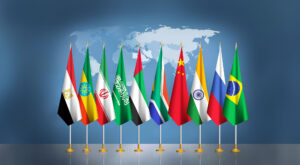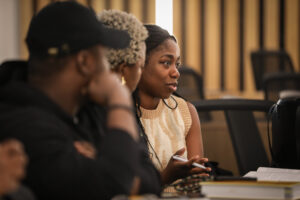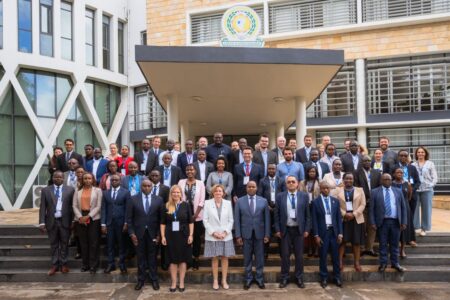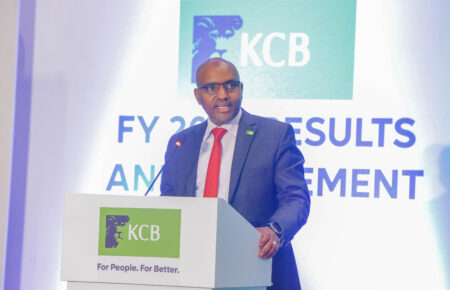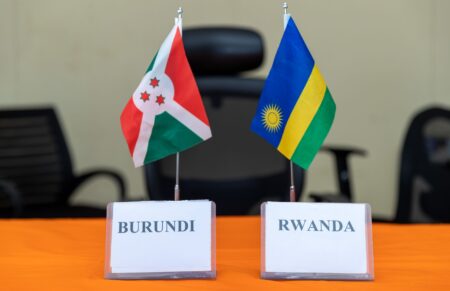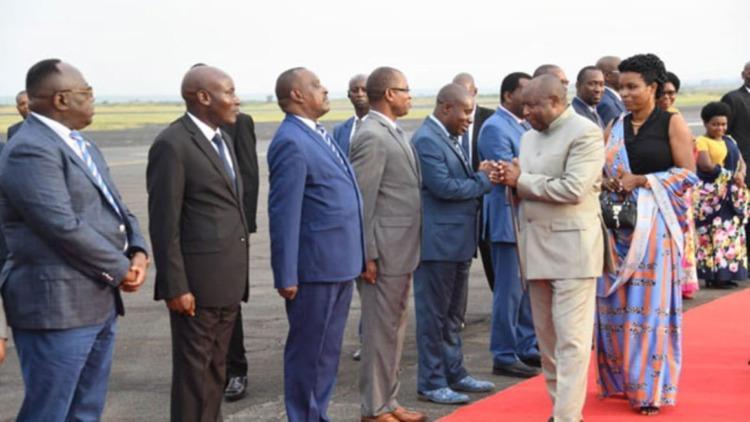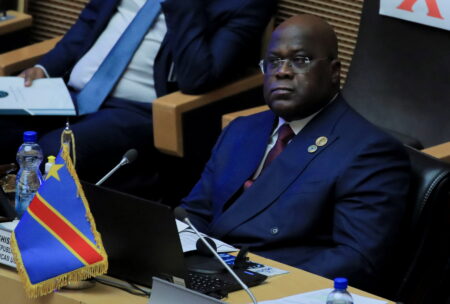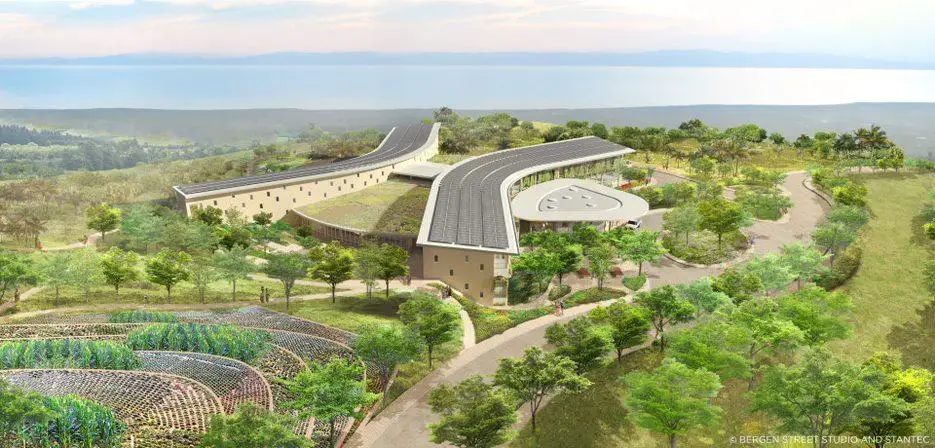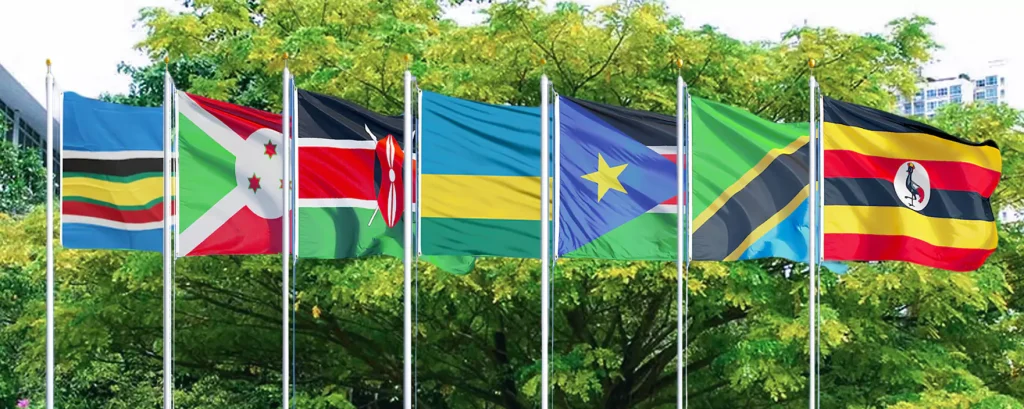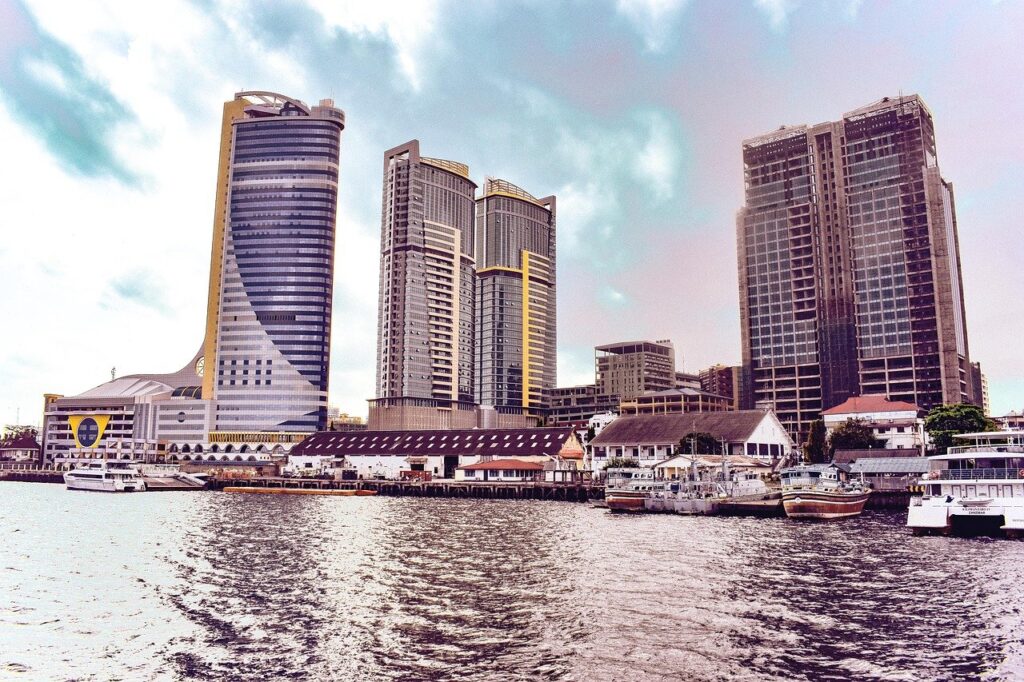- IMF Growth Forecasts: BRICS to Lead the World in the Next 5 Years
- Vantage Capital seals exit from PickAlbatros Hotels after $18.4M pandemic boost
- Madica backs Earthbond in bold pre-seed bet on sustainable solutions
- Venture capital and debt drive growth in Kenya’s agri-tech sector
- Sustainability Week Africa: Pioneering change amidst climate challenges
- Refugee Crisis in Chad as War and Hunger in Sudan Drive Thousands Across Border
- Senegal 2050: A Blueprint for Economic Transformation
- Kenya’s banking sector corporate taxes hit $563.7 million despite industry profit drop
Browsing: Burundi
- The EAC’s distribution sector is marred by systemic challenges, despite claims of a working free trade zone in the bloc.
- Stakeholders say that persistent bottlenecks hamper the flow of goods and services across the eight-member area.
- A recent EU-led EAC Peer-to-Peer Learning Conference sought to formulate a strategic action plan to address barriers limiting the industry’s growth and development.
The East African Community (EAC) is an eight-country strong regional free trade bloc in East Africa, by definition, it should mean easier movement or distribution of goods and services, but that’s only true on paper, the reality on the ground is quite on the contrary.
EAC maintains that it is “dedicated to enhancing economic efficiency and fostering regional integration through strategic investments and the utilization of established industries. The goal is to position the Community as a single investment area, harmonizing trade policies, investment incentives, and product standards.”
Protocols demand that …
- East Africa’s banking giant KCB Group reports heightened operational expenses, which surged to $627 million in 2023, up from $447.9 million in 2022.
- The costs are associated with the consolidation of its subsidiary in the Democratic Republic of Congo, Trust Merchant Bank (TMB),
- Additional expenditures were related to a voluntary retirement scheme as well as litigation fees.
KCB Group, one of East Africa’s banking giants, has reported a net profit decline to $282 million for the year ending December 2023, from $307 million in 2022.
The bank has attributed this decline to increased operational costs and higher provisions for bad loans as primary reasons for the downturn in profitability.
In a period marked by economic challenges and strategic expansions, KCB Group faced heightened operational expenses, which surged to $627 million in 2023, up from $447.9 million in 2022.
DRC-based Trust Merchant Bank consolidation costs
This increase was largely due to …
- Burundi and Rwanda relations have hit a new low, with the Burundian government suspending ties with Rwanda, closing the Rwandan border.
- The diplomatic row between Burundi and Rwanda has a complex history, with tensions dating back to the colonial era and continuing into the post-independence period.
- The border closure further strains relations between Burundi and Rwanda, as well as the larger East African Community (EAC).
Burundi and Rwanda relations have hit a new low, with the Burundian government suspending ties with Rwanda, closing the Rwandan border, and “chasing” out Rwandese nationals.
Burundi has accused its neighbour of supporting rebel attacks in the region. The move comes after Burundi’s President Évariste Ndayishimiye accused Rwanda of backing the Red Tabara rebel group, which orchestrated an attack near Burundi’s western border, where 20 people lost their lives, including women and children.
“We have closed our borders (with Rwanda), anyone who tries to …
- Burundi is the other country projected to record one of the fastest growing economies in 2024, according to the IMF.
- The Fastest Growing Economies in 2024 (real GPD growth) projections index places Rwanda ahead of her regional peers with a projected growth of 7.0% next year.
- Tanzania comes in closely with a projected growth of 6.1% while that of Burundi is forecast to grow at 6%.
Rwanda, Tanzania and Burundi will be the fastest growing economies in East Africa in 2024, the latest projection by the International Monetary Fund (IMF) indicates, with all countries posting economic growth above the world’s average.
The Fastest Growing Economies in 2024 (real GPD growth) projections index places Rwanda ahead of her East African Community (EAC) peers with a projected growth of seven per cent this year.
Tanzania comes in closely with a projected growth of 6.1 per cent while that of Burundi is projected …
- The credit seeks to restore external sustainability, and strengthen debt management while creating fiscal space for accelerated and inclusive growth.
- The staff-level agreement is subject to IMF management approval and consideration by the Executive Board.
- Burundi’s reform program aims to support economic recovery from shocks.
The International Monetary Fund (IMF) has agreed to dispatch a $261.7 million loan to crisis-saddled Burundi, its first in nearly a decade, as the country moves to bolster economic recovery and reforms.
The IMF boost to the poverty-stricken nation follows “a staff-level agreement on economic policies and reforms” that was struck for a new 40-month arrangement under the Extended Credit Facility (ECF) after the lender’s Mission Chief for Burundi, Mame Astou Diouf, visited Bujumbura in February.
Burundi’s reform program aims to support economic recovery from shocks, restore external sustainability, and strengthen debt management while creating fiscal space for accelerated and inclusive growth.
Since 2015, Burundi…
- DRC, through its investment portal ANAPI reassures investors
- Rwanda slams US statement saying it undermines regional peace process
- EAC Heads of State order immediate cease fire in Rwanda-DRC conflict
Rwanda should stop supporting the rebel group and withdraw its soldiers from the DRC, the US State Department has said in an official statement.
This US call for Rwanda to ‘cease and desist’ aiding rebel groups and to also recall its troops from the DRC is the latest effort by the international community to intervene in the protracted dispute between the two countries.
The US says Rwanda’s alleged aid to rebel factions in the DRC is undermining the regional peace process.
The statement comes only days after the East African Community (EAC) Heads of State met in the Burundi capital of Bujumbura. The meeting was an Extra-Ordinary Summit held to evaluate the “Security Situation in the Eastern Democratic Republic of Congo …
Burundi’s future is bringing optimism via the change of the country’s health care system, despite a country that has been marred by a lack of suitable facilities as well as human resources in the health arena.
Since the civil war in 2003 that broke out in Burundi, there has been a pressing need for a strategy that is both long-term and forward-thinking in order to guarantee that the most vulnerable children and youth are not abandoned. In this light, and bearing in mind that access to health is a fundamental human right, essential to the future of the country.
Even though a truce was finally reached at the end of 2003, peace in certain parts of Burundi is more of a dream than a reality, and the aftereffects of the conflict are still very much felt. The country’s civil conflict has made the already dire economic situation much worse and …
With the recent addition of the DRC to the East African region, landlocked countries have found an alternative port of entry in the Atlantic Ocean. The swiftness of trade with two ports of entry and the region’s strategic location will be incomparable to any other region on the continent.
The East African Federation would be the fourth largest country in both population and landmass, trailing after China, India and the United States. President Uhuru Kenyatta says that the federation would have over 300 million people.
The gross domestic product for the region will sum up to US$250 billion, the fourth-largest in Africa and the 34th biggest globally. Since the beginning of the last decade, East Africa has had the fastest growing economy globally. In 2019, the region’s economy grew by about 5 per cent. If the federation continues with this growth rate, the new country would quickly become the biggest …
Tanzania Railway Investment
In the most recent development, an additional 282km of the railway are been constructed to connect Tanzania and Burundi giving the latter access to East Africa’s biggest and busiest port.
The construction is an extension of the already laid down Standard Gauge Railway (SGR) in Tanzania. The two governments have signed an agreement that paves way for new rail to be laid at a sum of US$900 million.
What does this extension mean for Burundi and how will it benefit Tanzania?
Apart from the obvious economic benefits, lets first consider the small towns through which the railway snakes. From Tanzania’s little town of Uvinza in Kigoma region to the bustling capital city of Gitega in Burundi, the railway is expected to spark life, rejuvenate slowed businesses and build new people relations.
None said it better than Burundian Minister for Finance, Budget and Economic Planning Domitien Ndihokubwayo who …
The Republic of Burundi has a new president, it has taken steps to rebuild regional and international relations and its economy is starting to pull up, as such, leaders of the East African Community (EAC) are vouching in favor of the country and imploring the European Union, it is time to lift sanctions.d
The European Union (EU) imposed sanctions against the Republic of Burundi back in 2015 when the late President Pierre Nkurunziza extended his tenure in office seeking a third term. At that time, army officials in the country are reported to have attempted a coupe that did not succeed.
Speaking to the press mid this week, the Secretary-General of the East African Community (EAC), Hon. Dr. Peter Mathuki appealed to the European Union (EU) member states to lift sanctions against Burundi saying, ‘the country has opened a new page and was ready to move forward. (https://www.tnsdiamonds.com/) …
